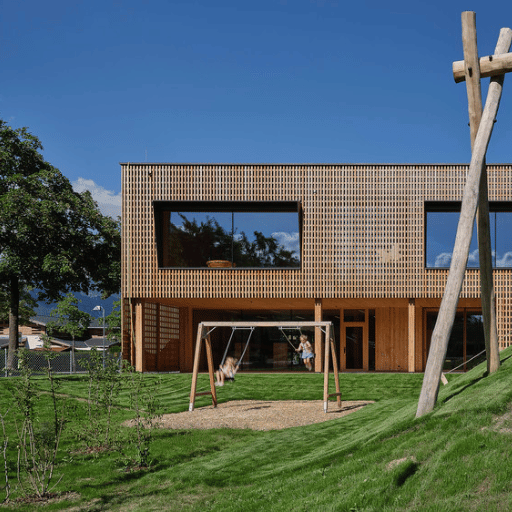Heilpädagoge/Heilpädagogin (Therapeutic Pedagogue) Role Interview (Kindergarten)
In this article, we’ve put together all the information you need to run an interview for a Heilpädagoge/Heilpädagogin (Therapeutic Pedagogue) in a Kindergarten in Austria. We’ve included a Heilpädagoge/Heilpädagogin (Therapeutic Pedagogue) job description, job requirements (useful for adding to job advertisements), common job interview questions to ask someone applying for your advertised Heilpädagoge/Heilpädagogin (Therapeutic Pedagogue) role, follow-up questions to ask your potential new hire and excellent answers that candidates give to Heilpädagoge/Heilpädagogin (Therapeutic Pedagogue) job interview questions. We’ll also look at what happens in an interview for a Heilpädagoge/Heilpädagogin (Therapeutic Pedagogue) and the hiring process after the interview.
Heilpädagoge/Heilpädagogin (Therapeutic Pedagogue) Role Job Description, Requirements, Questions
Role Job Description:
The role of a Heilpädagoge/Heilpädagogin, also known as a Therapeutic Pedagogue, in a Kindergarten in Austria is to provide therapeutic pedagogical support to children who require additional assistance. These children may have developmental delays, learning disabilities, behavioral issues, or other special needs. The Heilpädagoge/Heilpädagogin works closely with the Kindergarten teachers and parents to create individualized plans and interventions to help these children reach their full potential.
Role Job Requirements:
To be successful in this role, a Heilpädagoge/Heilpädagogin should have a strong educational background in special education or a related field. They should have a deep understanding of child development and various learning disabilities. Excellent communication and interpersonal skills are essential, as they will be working closely with children, parents, and other professionals. Patience, empathy, and the ability to adapt teaching strategies to meet individual needs are also important qualities for a Heilpädagoge/Heilpädagogin.
Role Job Interview Questions:
1. Can you describe your experience working with children with special needs?
– Follow-up: What strategies have you found to be effective in supporting these children?
2. How do you collaborate with Kindergarten teachers and parents to create individualized plans for children?
– Follow-up: Can you provide an example of a successful collaboration you have had in the past?
3. How do you stay up-to-date with the latest research and best practices in therapeutic pedagogy?
– Follow-up: Can you give an example of how you have implemented new strategies or techniques based on your research?
4. How do you handle challenging behaviors in children?
– Follow-up: Can you share an example of a challenging behavior you have successfully addressed in the past?
5. How do you ensure that children with special needs feel included and supported in the Kindergarten environment?
– Follow-up: Can you provide an example of an activity or intervention you have implemented to promote inclusion?
Examples of excellent answers from candidates:
1. “In my previous role as a special education teacher, I worked with children with a wide range of special needs, including autism spectrum disorder and ADHD. I found that using visual supports, such as visual schedules and social stories, was highly effective in helping these children understand expectations and manage their behavior.”
2. “I believe that collaboration is key in creating individualized plans for children. In my previous position, I regularly met with Kindergarten teachers and parents to discuss the child’s progress and any concerns. Together, we would brainstorm strategies and interventions, ensuring that everyone was on the same page and working towards the same goals.”
3. “I am a firm believer in lifelong learning and staying up-to-date with the latest research. I regularly attend conferences and workshops related to therapeutic pedagogy, and I am an active member of professional organizations. Recently, I implemented a new sensory integration program in my classroom after attending a workshop on the topic, and I have seen significant improvements in the children’s ability to self-regulate.”
4. “When faced with challenging behaviors, I always strive to understand the underlying cause. I take a proactive approach by implementing positive behavior support strategies, such as visual cues and rewards systems. In one instance, I worked with a child who had difficulty transitioning between activities. By providing a visual timer and a preferred activity as a reward, we were able to successfully reduce the challenging behaviors associated with transitions.”
5. “Inclusion is a top priority for me. In my previous role, I organized regular inclusive activities, such as buddy reading sessions, where children with and without special needs would read together. This not only fostered friendships but also helped children with special needs improve their reading skills in a supportive environment.”
Heilpädagoge/Heilpädagogin (Therapeutic Pedagogue) (Austria) Interview Schedule
To conduct a comprehensive one-hour interview for a Heilpädagoge/Heilpädagogin (Therapeutic Pedagogue) role in a Kindergarten in Austria, consider the following schedule:
- Introduction and overview of the role (5 minutes)
- Candidate’s experience and skills assessment (15 minutes)
- Job-specific questions (25 minutes)
- Follow-up questions and clarification (10 minutes)
- Candidate’s questions about the role and organization (5 minutes)
Best Practices for Heilpädagoge/Heilpädagogin (Therapeutic Pedagogue) Candidate Communication
After the interview for your Heilpädagoge/Heilpädagogin (Therapeutic Pedagogue) role (Austria), it is crucial to keep the candidate informed about the hiring process. Best practices include:
- Sending a personalized thank-you email to the candidate within 24 hours
- Provide a timeline for the Heilpädagoge/Heilpädagogin (Therapeutic Pedagogue) hiring process and when they can expect to hear back
- Regularly updating the candidate on their Heilpädagoge/Heilpädagogin (Therapeutic Pedagogue) job application status, even if there are delays
- Offering constructive feedback to unsuccessful candidates to help them improve for future opportunities at your Kindergarten
- Maintaining open and transparent communication throughout the entire process to ensure a positive candidate experience
Ready to start your hiring process?
Click the button above to get our simple-to-use Applicant Tracking System (ATS) that can be used to manage your hiring process.


